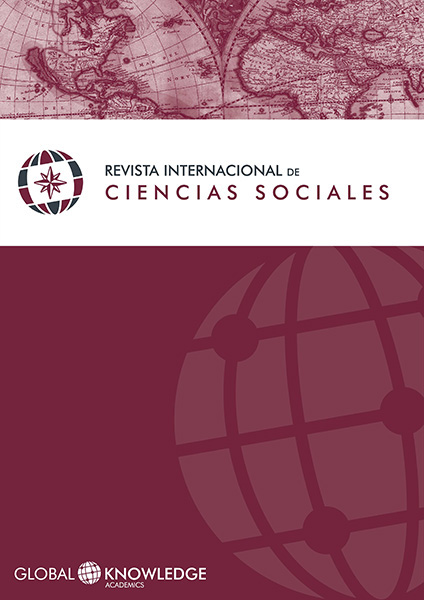The International Development Cooperation in the Universal Human Rights System: Human Rights as a Frame for Understanding the International Development Cooperation
DOI:
https://doi.org/10.37467/gka-revsocial.v4.795Keywords:
Cooperative Learning, Innovation, Solidarity, MarketingAbstract
The subjects of Management (Bachelor of Business Administration) and Promotion (Bachelor of Advertising and Public Relations) perform charity market promotional campaign organized by the students of nursery and primary public school in Castellón (Spain). The objetives and competences defined in the project were successfully achieved, improving teamwork, communication, critical capacity and social awareness of the university. The cooperative methodology significantly increased motivation to effectively manage the transmission of knowledge from classroon to society.
Downloads
Global Statistics ℹ️
|
474
Views
|
327
Downloads
|
|
801
Total
|
|
References
Baena, V. (2010). Innovación docente e identificación de inhibidores del aprendizaje en el área de empresa. Una propuesta metodológica. Espiral-Cuadernos del Profesorado, 3 (6), 3-14. DOI: https://doi.org/10.25115/ecp.v3i6.906
Baena, V. y Padilla, V. (2012). Refuerzo y desarrollo de competencias mediante la elaboración de una campaña real de marketing: la Fórmula UEM. Revista de Docencia Universitaria. REDU, 10 (1), 199-214. DOI: https://doi.org/10.4995/redu.2012.6128
Blumenfeld, P.C., Soloway, E., Marx, R.W., Krajcik, J.S., Guzdial, M. y Palincsar, A. (1991). Motivating project-based learding: Sustaining the doing, supporting the learning. Educational Psychologist, 26 (3,4), 369-398. DOI: https://doi.org/10.1080/00461520.1991.9653139
Campos, E. y Campos, E. (2010). ¿Competencias básicas? Espiral-Cuadernos de Profesorado, 3(5), 73-76. DOI: https://doi.org/10.25115/ecp.v3i6.912
Cano, M.E. (2008). La evaluación por competencias en la educación superior. Universitat de Barcelona. Disponible en línea: http://www.ugr.es/local/recfpro7rev123COL1.pdf. Última fecha de acceso: 4 de mayo 2010.
De Juan, M.D., González, E., Parra, J.F., Kanther, A. y Sarabia, F.J. (2008, septiembre). Antecedentes del aprendizaje autorregulado del estudiante universitario de marketing. Ponencia presentada en el XX Encuentro de Profesores Universitarios de Marketing, Gran Canaria, España.
Espinosa, J., Jiménez, J., Olabe, M. y Basogain, Y. (2006). Innovación docente para el desarrollo de competencias en el EEES. Universidad del País Vasco. Disponible en la web: http://campus.usual.es/ofees/ARTICULOS/p216.pdf. Última fecha de acceso: 30 de mayo 2011.
Fabrer, J. (2005). http://www.ma1.upc.es/recerca/reportstre/001fabregat.doc. Consultada a 20/07/2011.
García, A.J. y Troyano, Y. (2010). Aprendizaje cooperativo en personas mayores universitarias. Revista Interamericana de Educación de Adultos, 32 (1), 1-15.
Gil, C., Alías, A., Montoya, M.D.G. (2006). Cómo mezclar diferentes metodologías docentes para motivar e impulsar a un mayor número de alumnos. Presentado en las VI Jornadas de Aprendizaje Cooperativo, Barcelona, España.
González, N. y García, Mª. R. (2007). El aprendizaje cooperativo como estrategia de enseñanzaaprendizaje en Psicopedagogía (UC): repercusiones y valoraciones de estudiantes. Revista Iberoamericana de Educación, 42 (6), 1-13.
Hernández, F. (1996). Representar la función de la Escuela desde los proyectos de trabajo. Revista Pedagógica, 6, 26.
Johnson, D.W. y Johnson, R.T. (1989). Cooperative learning: What special education teachers needs to know. Pointer, 33 (2), 5-10. DOI: https://doi.org/10.1080/05544246.1989.9945370
Martinez, J.R. y Galán, F. (2000). Estrategias de aprendizaje, motivación y rendimiento académico en alumnos universitarios. Revista Española de Orientación y Psicopedagogía, 11 (19), 35-50. DOI: https://doi.org/10.5944/reop.vol.11.num.19.2000.11323
Polanco, A. (2005). La motivación en los estudiantes universitarios. Actualidades Investigativas en Educación, 5 (2), 1-13.
Downloads
Published
How to Cite
Issue
Section
License
Those authors who publish in this journal accept the following terms:
-
Authors retain copyright.
-
Authors transfer to the journal the right of first publication. The journal also owns the publishing rights.
-
All published contents are governed by an Attribution-NoDerivatives 4.0 International License.
Access the informative version and legal text of the license. By virtue of this, third parties are allowed to use what is published as long as they mention the authorship of the work and the first publication in this journal. If you transform the material, you may not distribute the modified work. -
Authors may make other independent and additional contractual arrangements for non-exclusive distribution of the version of the article published in this journal (e.g., inclusion in an institutional repository or publication in a book) as long as they clearly indicate that the work was first published in this journal.
- Authors are allowed and recommended to publish their work on the Internet (for example on institutional and personal websites), following the publication of, and referencing the journal, as this could lead to constructive exchanges and a more extensive and quick circulation of published works (see The Effect of Open Access).













